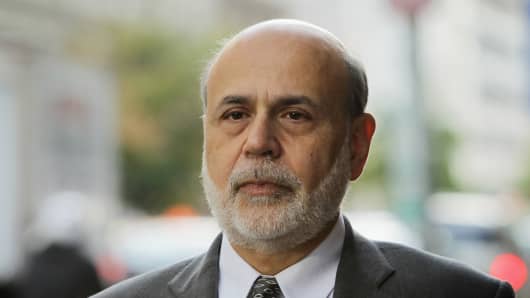Yugoslavia’s Warning to America
March 2, 2015
That America is in trouble, and headed for more of it, is becoming received wisdom across the political aisle. For many on the Right, the Obama presidency heralds a new political age which they don’t like, just as many on the Left believed that the presidency of George W. Bush indicated that the end of the American experiment was nigh.
While the right-wing media regularly includes warnings that Obama has ushered in politico-economic trends that bode ill for America’s future, their counterparts on the Left are beginning to admit their doubts about our whole enterprise. Today, over at Vox, Matt Yglesias confesses that American democracy may well be doomed after all.
Yglesias is hardly a fringe character, rather an embodiment of Millennial liberalism. Once a mover and shaker over at the influential (and notorious to conservatives) JournoList, Yglesias has undeniable cachet among Beltway influencers, so when he says the country is pretty much cooked, it matters.
As usual over at Vox, his argument has a lot of flashcard-friendly facts and figures to back it up, and his conclusion — that political paralysis rooted in deep partisanship is only getting worse and threatens America’s constitutional democracy — is difficult to refute entirely. That said, Yglesias’ prognostications about America’s future course, including that the United States may turn into a gigantic, nuclear-armed Honduras, seem far-fetched, notwithstanding the apparent desire of Vox writers and readers to invite all of Central America to live in this country.
Yglesias gives short shrift to notions of a military coup or even a second American Civil War, and I don’t think he’s correct here. While it is difficult for anybody who knows the Pentagon well to imagine American generals and admirals getting together to overthrow the civilian government — that would require obscene amounts of PowerPoint and might endanger top brass golden parachutes with Beltway Bandits — the notion of a Civil War 2.0, however terrifying it may be, needs to be faced squarely, if we wish to avoid that awful fate.
America in the 21st century runs little risk of becoming Honduras Grande, but if current politico-economic trends continue much longer, we might well wind up a lot like Yugoslavia. That statement is sure to be controversial, since few Americans, citizens of the global hegemon and to many of them a most exceptional country, like to be compared with a relatively small Balkan federation that collapsed into wars and genocide a generation ago.
Yet the collapse of Yugoslavia offers several cautionary tales to Americans today, and if they are wise they will heed them and set the United States on a correction course before it is too late. As one who witnessed the dreadful collapse of Yugoslavia and its terrible aftermaths — including the seemingly permanent impoverishment of Southeastern Europe, mired in crime, corruption, and extremism — I would very much like America to discover a far happier fate.
However, some of the parallels are eerie and troubling. The differences must be explained up-front. Yugoslavia at its collapse had less than one-tenth of America’s population now, and its system of government was a socialist dictatorship, albeit one of a relatively enlightened kind. Notwithstanding a very nasty secret police force, Yugoslavia as nurtured under the charismatic Tito was a good deal more pleasant place to live than anywhere in the Soviet Bloc. Yugoslavs were free to travel abroad and, after the early 1950s, the repressive state apparatus didn’t have to throw many dissidents in prison, as public shaming, including threats of unemployment and loss of housing, cowed most would-be complainers into towing the party line, at least in public.
The root of Yugoslavia’s collapse was economic, particularly its parlous state finances. During the Cold War, Tito, who broke with Stalin in 1948 and thereby shattered Communist unity in Eastern Europe, was able to get big Western loans, since NATO viewed Yugoslavia as a necessary anti-Soviet bulwark in Europe, and with these billions of dollars, at low interest rates, the country developed a wide array of industries under its unique market socialist model.
Unfortunately, the oil shocks of 1973 ultimately undid this Balkan ponzi scheme, and as the cost of borrowing foreign money became prohibitive, Yugoslavia’s economy began to creak. At root, the country’s current operations, including funding the bloated state sector, depended on borrowed foreign money that Yugoslavia could no longer afford.
After Tito’s death in 1980, amid Western fears that Yugoslavia might implode to Moscow’s benefit, NATO signaled to Belgrade that, if they got their fiscal house in order, the money might keep flowing. In response, the Communist Party ordered Sergej Krajgher, a party stalwart from Slovenia, to see what had to be done to repair the country’s mounting socio-economic mess.
After two years of study, Krajgher’s commission in 1983 released its report, which correctly assessed that Yugoslavia needed to get its economic house in order to avoid financial, and then political, collapse. Specifically, Krajgher recommended the sell-off of unprofitable state enterprises, allowing more market forces to work, and above all comprehensive fiscal reform to get Yugoslavia off the drug of foreign loans. This was all excellent advice.
Its effect, however, was zero. The report was ignored, and Communist officials never made any effort to seriously implement any of Krajgher’s solid recommendations. It was too politically painful to make cuts, so the government pretended there was no problem. Until it was too late.
Comparisons to Obama are unavoidable. Early in his first term, he empowered a bi-partisan board, known colloquially as the Simpson-Bowles commission, to investigate improving the long-term condition of America’s state finances. The commission’s findings were thorough and persuasive, and they offered a way out of the country’s fiscal morass. At a minimum, Simpson-Bowles set the terms for a necessary debate. But Obama inexplicably pretended that his own commission ever existed. No debate ensued, since discussing cuts of government benefits to voters is electorally toxic — Republicans are no more eager to talk about this pain than Democrats — and nothing happened.
America, possessing the global reserve currency, has a margin for fiscal error enjoyed by no other country, but at some point the game of borrowing vast amounts of foreign money to fund our government will end, and end badly. The U.S. national debt now exceeds $18 trillion, which given the fact that only a little more than 120 million Americans actually pay federal taxes, amounts to almost $150,000 of debt per taxpayer. To say nothing of ballooning state and local government indebtedness. Rhode Island, where I lived for many years, witnessing its love of other people’s money to pay for an unsustainable welfare state, is so deeply in debt that it’s as bad off as Greece, as even the mainstream media admits.
There is no reason to think this will end pleasantly, given the track record of every other country that has gotten itself deeply into long-term debt and dependency on borrowed foreign money to pay for current liabilities. Once doubts of any sort emerge about the U.S. dollar’s status as the global reserve currency, the rot will emerge rapidly and America’s fiscal nightmare will be here, with a vengeance. That reckoning can be delayed for years, even decades, but when it comes, as it eventually will, it will come suddenly, at which point there will be no palatable remedy.
Possessing only the weak dinar, Yugoslavia had no such margin for error or avoidance, and the party’s punting on economic reform meant that the fiscal collapse would come sooner than later. By the late 1980s, interest rates and unemployment were both sky-high and Belgrade was running out of hard (i.e. real) money. Repeated devaluations of the dinar did little good, and even a belated IMF effort in 1988 to float Yugoslavia a bit longer, in exchange for promises of real market reforms, could not stave off disaster. It was too late. Political dysfunction had become fatal, making economic reform impossible.
Worse, economic problems, including unemployment and inflation that impoverished Yugoslavs rapidly — by the time the country went over the cliff in 1991, real incomes were half what they had been a generation before — exacerbated the country’s serious ethnic grievances. When combined with economic emergency, Yugoslavia’s ethnic politics proved a lethal combination that led directly to wars and genocide.
Yugoslavia was a very diverse country, ethnically and religiously, and the divisions between groups were real and serious. Unlike 21st century Americans, Yugoslavs were under no illusions that “diversity is our greatest strength” — they knew the opposite was the truth — and the Communists went to great lengths to keep ethnic peace by banning what we would term “hate speech” while mandating that the official doctrine that Yugoslavia’s diverse peoples really loved each other deeply be placed at the level of quasi-religious dogma.
Rewriting history, to show certain ethnic groups as victims and others as perpetrators of race-based crimes, took its toll, since Yugoslavs knew this was too simple, and was being used as a political weapon by the authorities. Aggressive “affirmative action” in education and employment — Belgrade termed it the “ethnic key” — was another perennial sore-spot for many citizens, since ethnic status and ties often mattered more than competence. Needless to add, this hardly helped the economy either.
Perhaps worst of all, by preventing any honest discussion of ethnic matters, the Communists had a perverse knack of making each of Yugoslavia’s many ethnic groups feel that it was uniquely aggrieved. Thus any Serb or Croat or Albanian or Bosnian Muslim, could look at similar events and quietly determine that his group was really the persecuted one in the Communist-mandated racial games that were enforced by the authorities.
When the Communist monopoly on power began to wane in the mid-1980s, as across Eastern Europe, and the Yugoslav media began taking on taboo topics, nothing was more discussed than ethnic politics and their messy history. It quickly became a firestorm. To cite the most damaging example, around 1985 the Serbian media began reporting violent crimes committed against Serbs by Albanians in Kosovo, which was a majority-Albanian province that enjoyed self-government under Tito’s system.
While Albanians did commit crimes against Serbs, the opposite was also true, yet the Belgrade media focused on the former while ignoring the latter. Accounts of rapes of Serbian women — some real, many imagined — served to whip up nationalist fervor. The press, with Serbia’s Communist Party increasingly behind them, since they realized that nationalism was a powerful motivator for potential voters, indulged in regular accounts of lurid Albanian crimes against Serbs.
A classic case was that of Djordje Martinović, a Serb in Kosovo who in 1986 claimed he had been brutalized by Albanian thugs, including being anally raped with a bottle, in a horrible hate crime. The Serbian media went wild with the story, which inflamed rising nationalist passions. Albanian protests that the media was wrong made no headway with Serbs, who preferred what I have elsewhere termed The Narrative over facts. The subsequent revelation that Martinović had faked his attack, having injured himself in an act of self-pleasuring gone seriously wrong, got a lot less media attention than the initial story.
By then the damage was done, as anybody familiar with Yugoslavia’s tragic demise knows. A colorless Communist functionary on the make, Slobodan Milošević, realized that nationalism was the ticket to political success as Communism waned. He made the fate of Serbs in Kosovo, real and imagined, his major plank, and he exploited this toxic environment created by the media to whip up a frenzy that he could exploit, and he did.
By 1989, Milošević was the master of Serbia, and he promptly cancelled Kosovo’s autonomy, reducing the Albanians there to second-class status under the Serbs. This was payback for all the crimes perpetrated by Albanians against innocent Serbs. Of course, radicalization inevitably begets counter-radicalization, and before long Croats, Albanians, and all the non-Serbian groups in Yugoslavia were digging up their own nationalist grievances and skewed history to counter the Serbs. War and genocide were soon to follow, in a tragedy that was especially poignant because it was eminently avoidable.
Playing political games with race and ethnicity in any multinational society is a dangerous thing. Obama, by promising that he wanted to be president of all Americans, then governing as a highly partisan Democrat, has laid the groundwork for a hazardous future for the United States, hardly helped by his public indulging of black nationalism, particularly his incautious discussion of crimes both real and imagined against African Americans. However verboten discussion of white nationalism is at present among polite Americans, it is unavoidable that this will become an issue in the future, with potentially explosive consequences — to say nothing of the rise of Hispanic and Asian nationalisms too, as the United States becomes even more diverse than Yugoslavia was.
Managing this increasingly fissiparous country as economic prospects diminish will challenge the most gifted politicians. Indulging in ethnic resentments as a substitute for solutions to vexing politico-economic problems only makes things go from bad to worse, sometimes rapidly and painfully. With both our parties increasingly beholden to Wall Street at the expense of Main Street, average Americans of all backgrounds will not be happy that they are bequeathing a life of less affluence and opportunity to their children. In such a time of troubles, playing ethno-racial political games as a substitute for reform is deeply irresponsible.
It would be nice if Democrats and Republicans played better together, particularly on the budget and borrowing money. It would be especially nice if they seriously addressed issues of rising economic inequality and diminishing opportunities for average Americans. But it is imperative that they not fan the flames of ethnic and racial resentments if they wish to avoid a terrible outcome for our country.
The fate of Yugoslavia was anything but preordained. The United States, whatever its problems, is a far richer and better-run state than anything created by Tito. But the same threats lurk, particularly those of economic degradation caused by debt and made impossible to fix thanks to toxic racial politics. America need not become a vast Balkan horror show — I think it’s more likely in coming decades to become a huge nuclear-armed Brazil, with entrenched economic inequality, often among racial lines, that I find noxious and unworthy of our country — but the fate of Yugoslavia must be avoided at all costs. Our next Civil War would be much more vicious and protracted than the last one, have no illusions.
















